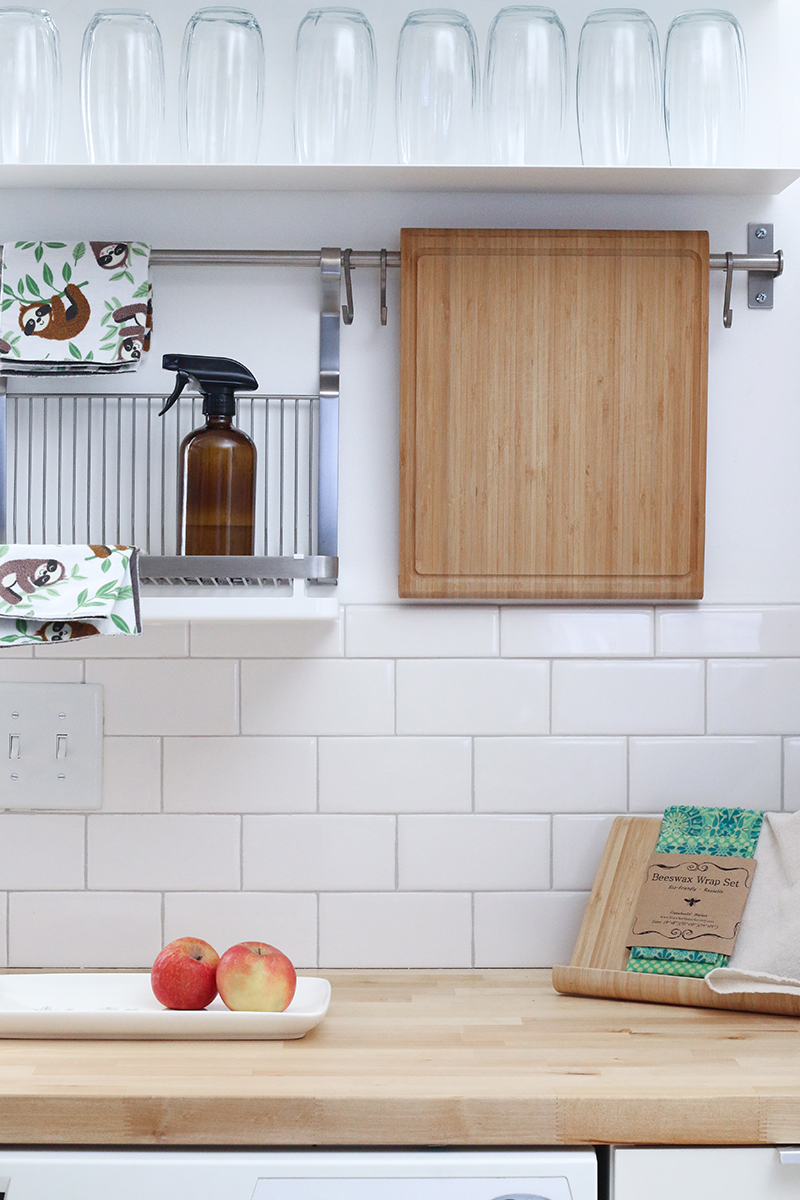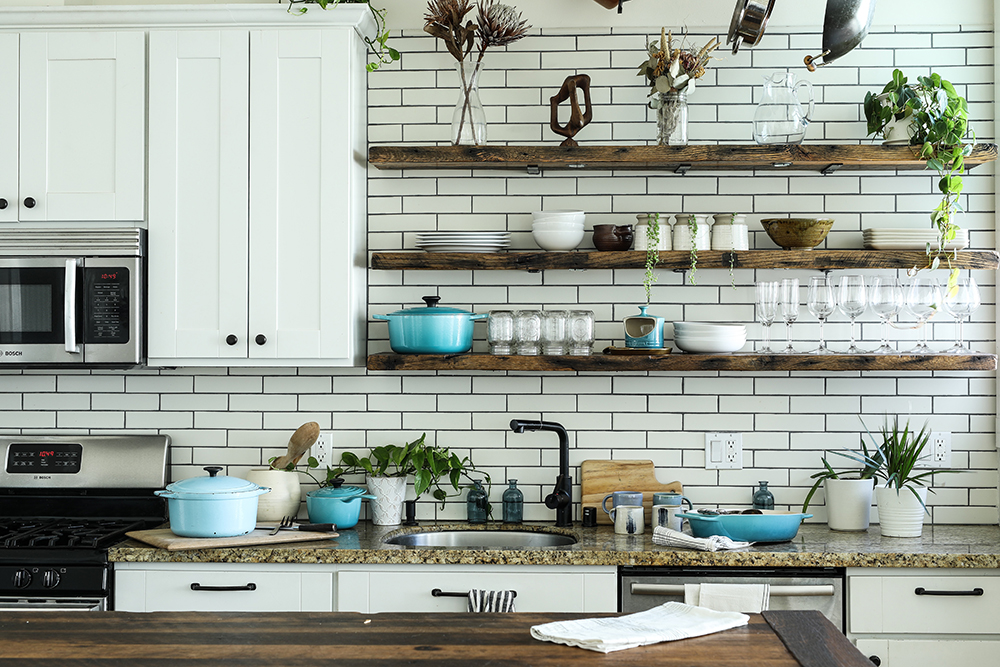Over the past few weeks, everyone has been spending a little more time in the kitchen than usual. While some whipped up gourmet meals, others were satisfied with a simple plate of pasta. The nice thing is that everybody can become heroes in the kitchen: climate heroes. Because the kitchen is the perfect place to maintain a sustainable lifestyle – ideally with our four tips:
Tip 1: Avoid food waste
Food waste is not good for your wallet and certainly not for the climate. Forty-five percent of food thrown away ends up in household waste. So here that means we can and must make a big difference! The environmental impact of household food waste is equivalent to driving 3.1 billion kilometers by car.
With a bit of planning, it is possible to prevent fruits from spoiling and bread from getting stale. The most important points:
- Store food properly. For example in the fridge, freezer, packed airtight.
- Keep an overview. Place fresh products in the back so that the old ones are consumed first.
- Expiry dates. Most foods can be enjoyed with no problem even after the expiry date! And one can trim away bad spots.
- Plan purchases. Before shopping, consider what you already have at home, how you could use it, what you want to cook in the next few days and how many meals you will eat at home.
- No processed foods. Processed food products do not necessarily cause household food waste, but they do in production, since the by-products are often thrown away. Therefore, it is preferable to do without, which is also better for health.
Do you think all of this is plausible and would you like to find out more? Take part in our ClimateAction «Avoid Food Waste»!
Tip 2: Avoid waste
Sometimes one cannot believe how quickly the kitchen trash can fills up. Yet with all the packaging one drags home from shopping, it’s not surprising. On average, Mr. and Mrs. Swiss produce 700 kilos of waste per capita per year, a large portion being kitchen waste. For Switzerland as a whole, this means over six million tons of waste annually, for which in turn oil and many other resources have been used and tons of CO2 have been pumped into the air. But here, too, it is fairly easy to control what and how much goes to waste.

- Shop package-free. There are now package-free stores across Switzerland. If you don’t have one nearby, you can buy unwrapped vegetables and fruits at the weekly market or in an organic shop.
- Alternative packaging. Oilcloths, paper bags, cotton sacks and glass containers are a great alternative to plastic and other disposable packaging when shopping and storing.
- Alternative cleaning agents. Not only do cleaning agents produce waste, they are also extremely harmful to our environment. Yet making cleaning products at home is relatively easy.
- Wood before plastic. Utensils for cooking and cleaning are more sustainable when they are made out of wood instead of plastic. On the one hand, no plastic had to be produced to make them and they are much easier and more sustainable to dispose of. On the other hand, cooking or cleaning with plastic utensils always causes a bit of micro plastic to end up in the sewage and our food.
Tip 3: Recycle
Zero waste in the kitchen doesn’t happen overnight, unfortunately. That is why the recycling of valuable materials is all the more important. In Switzerland we are doing pretty well: over 50% of waste is recycled in Switzerland. This makes us one of the leaders. But if you think that you still have room for improvement when recycling, you should …
- set up an easily accessible sorting system at home.
- consult swissrecycling if you are not sure where it belongs. There you will find all necessary information.
- clean it before recycling.
- Toss leftover food, vegetable and fruit peelings in the organic waste. That way it can be used to produce sustainable biogas or fertilizer, which is fed back into the nutrient cycle.
Recycling sounds good? Take part in our ClimateAction «Recycling – Dispose of Correctly»!
Tip 4: Cook the climate menu
Ultimately, we make purchases, generate waste, clean and use kitchen appliances because we cook. And, there are plenty of ways to stay climate-friendly when cooking:
- Enjoy meat occasionally, but don’t overdo it; occasionally include a vegan meal and, above all, eat regionally and seasonally.
- Our Climate-menus help you to cook sustainably as quickly and easily as possible. The recipes are characterized by the fact that they are tasty, inexpensive and produce about one kilo less CO2 than the average meal.
Click here for our delicious climate menus. Simply select the appropriate month and start cooking sustainably! And, if you want to become familiar with more ClimateActions, you can find an abundance here.

